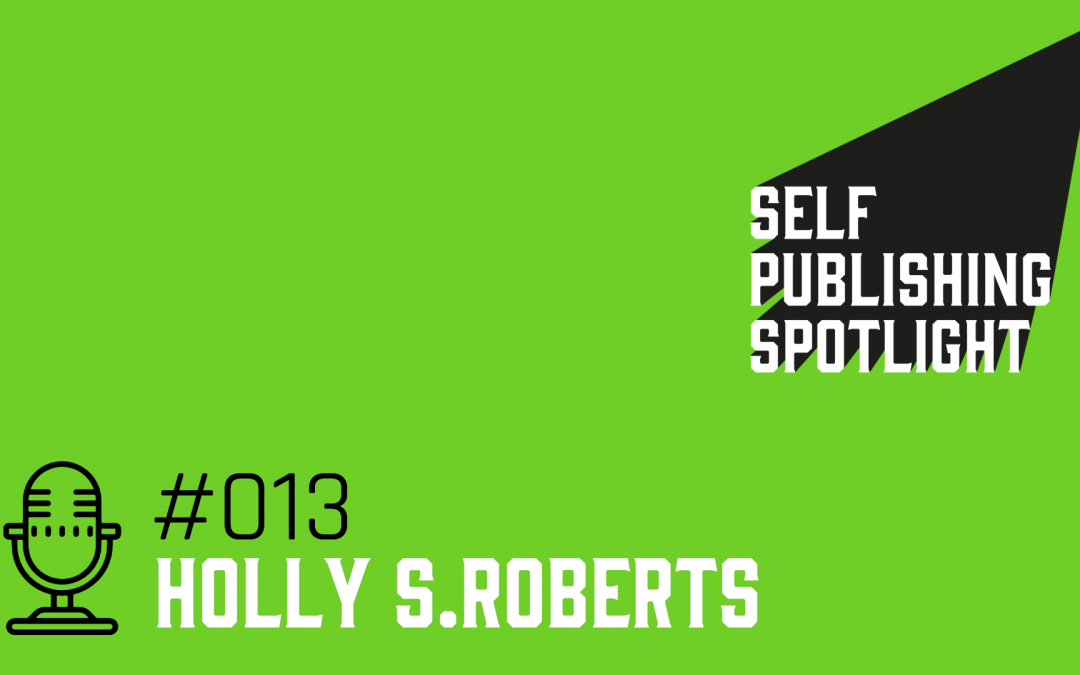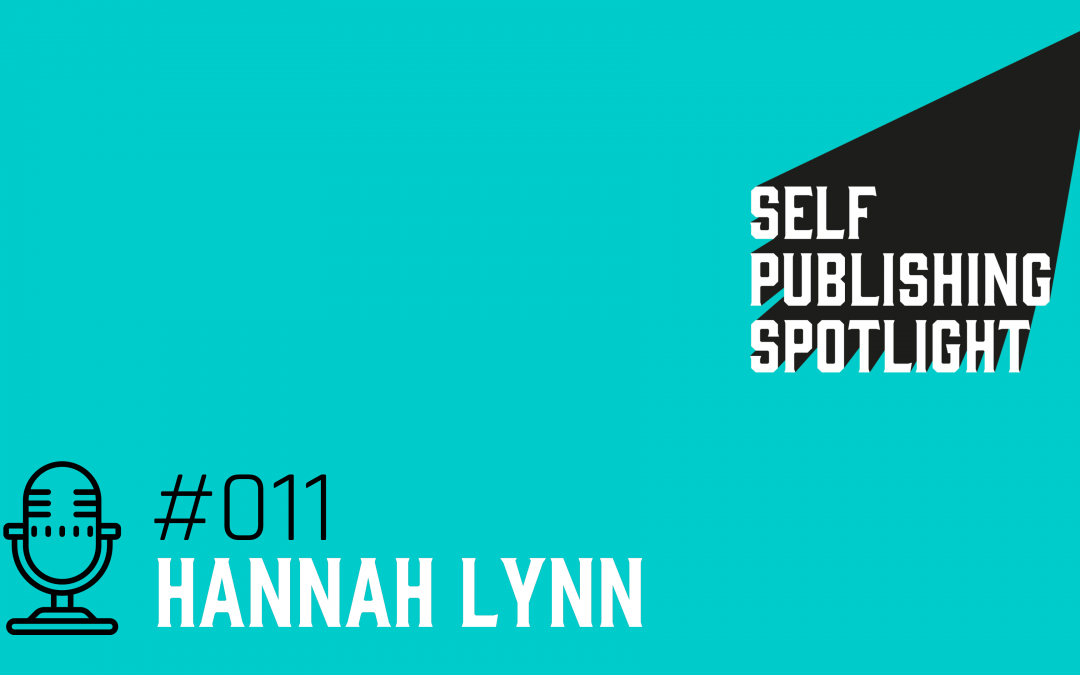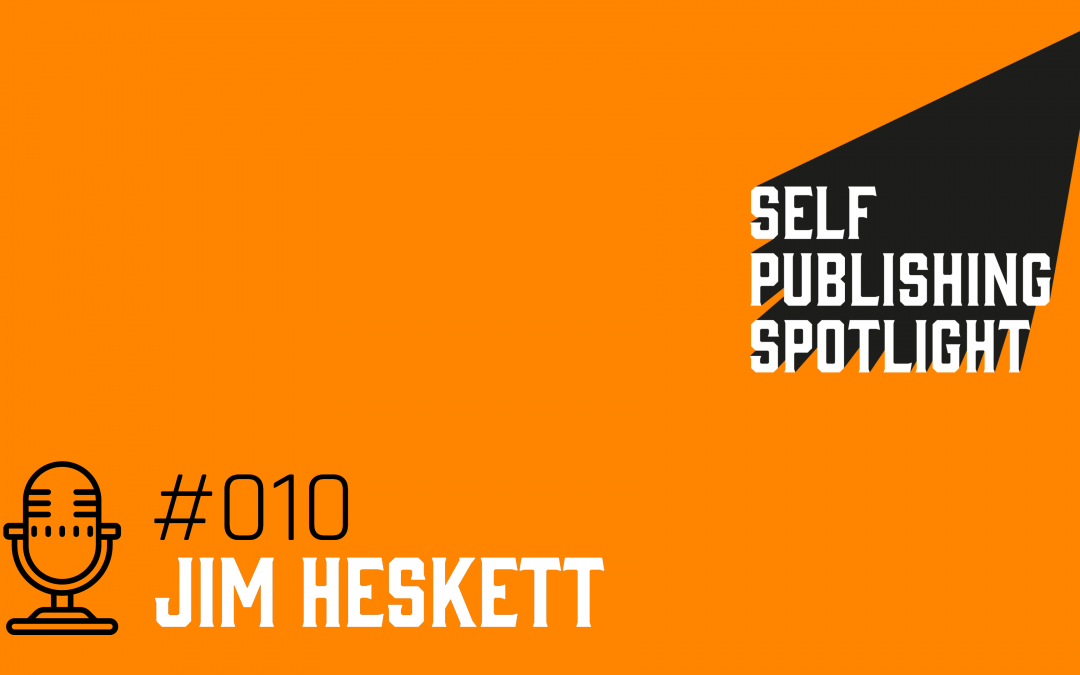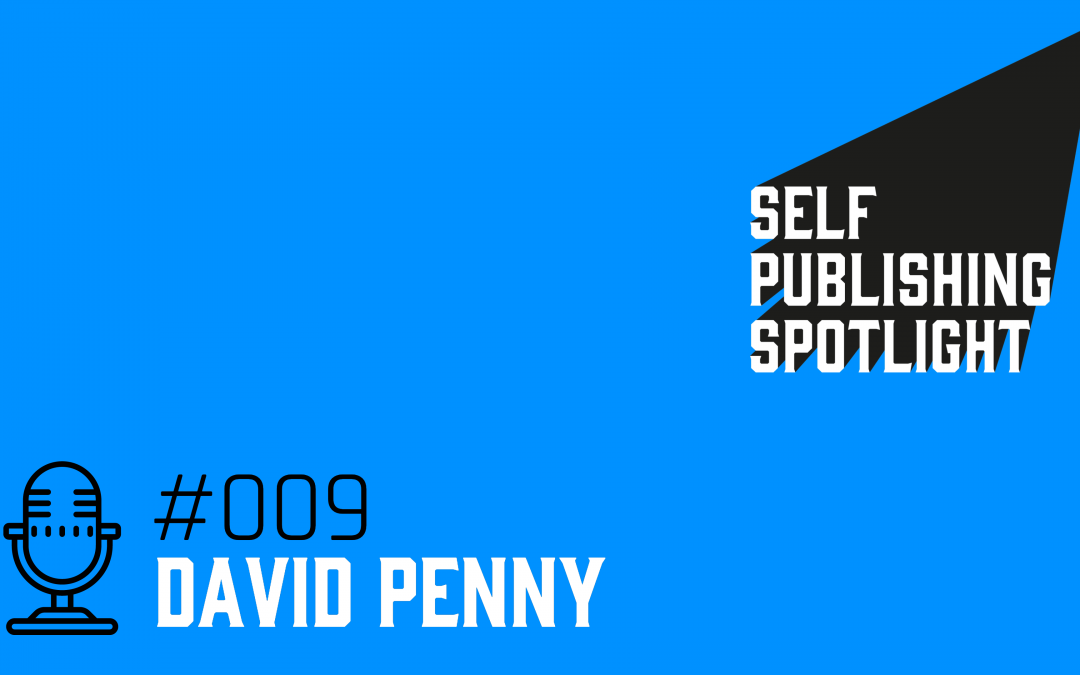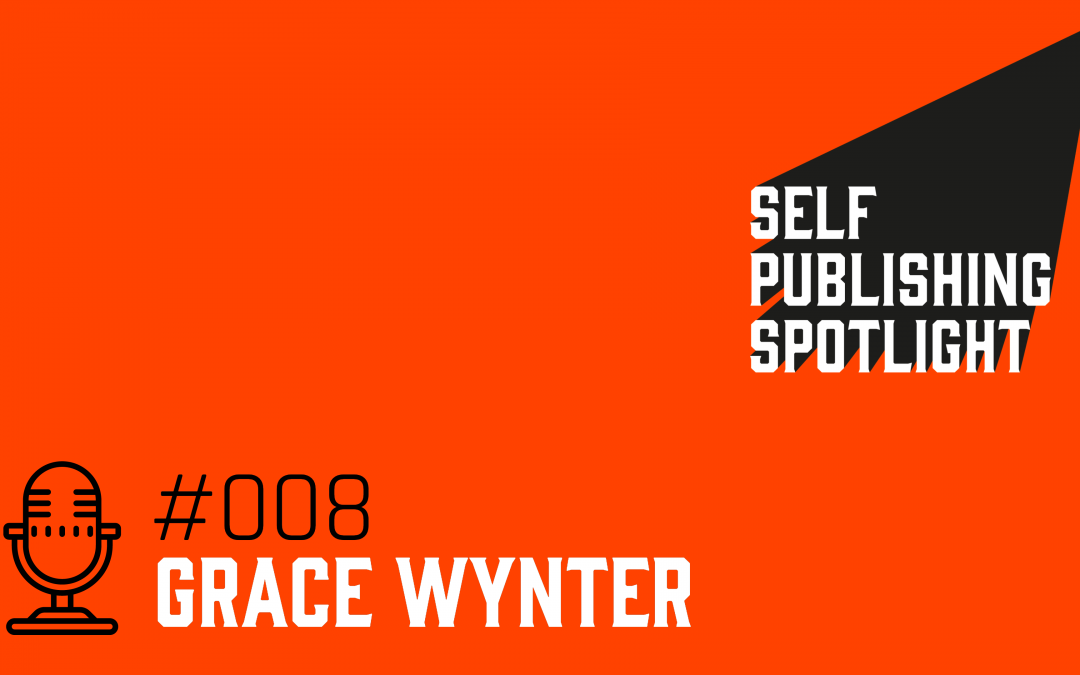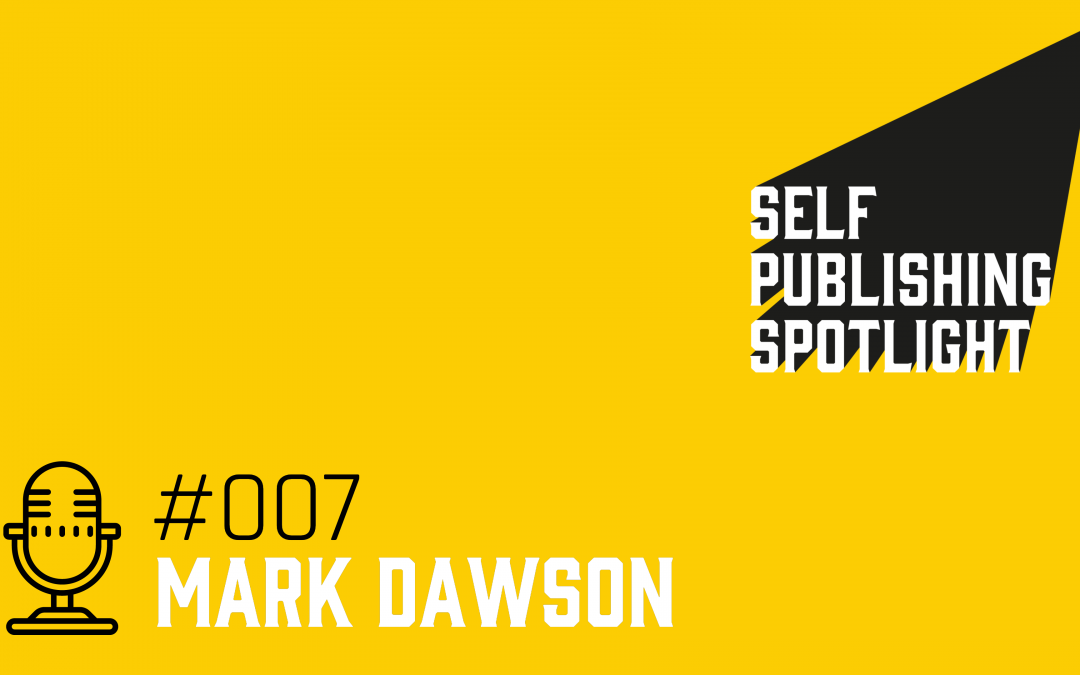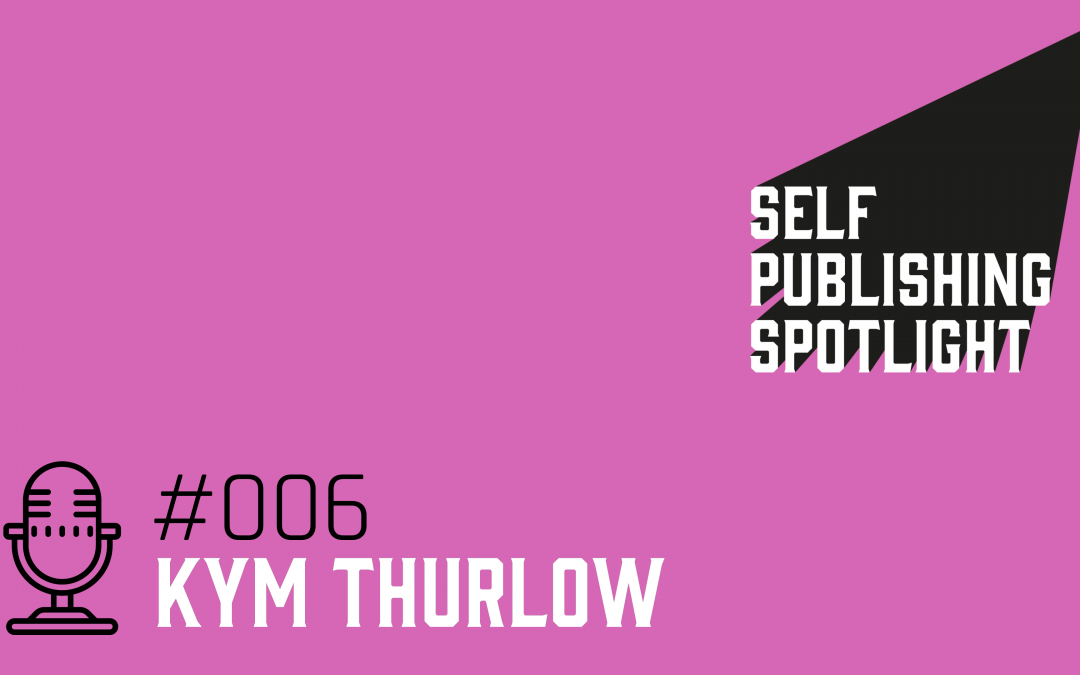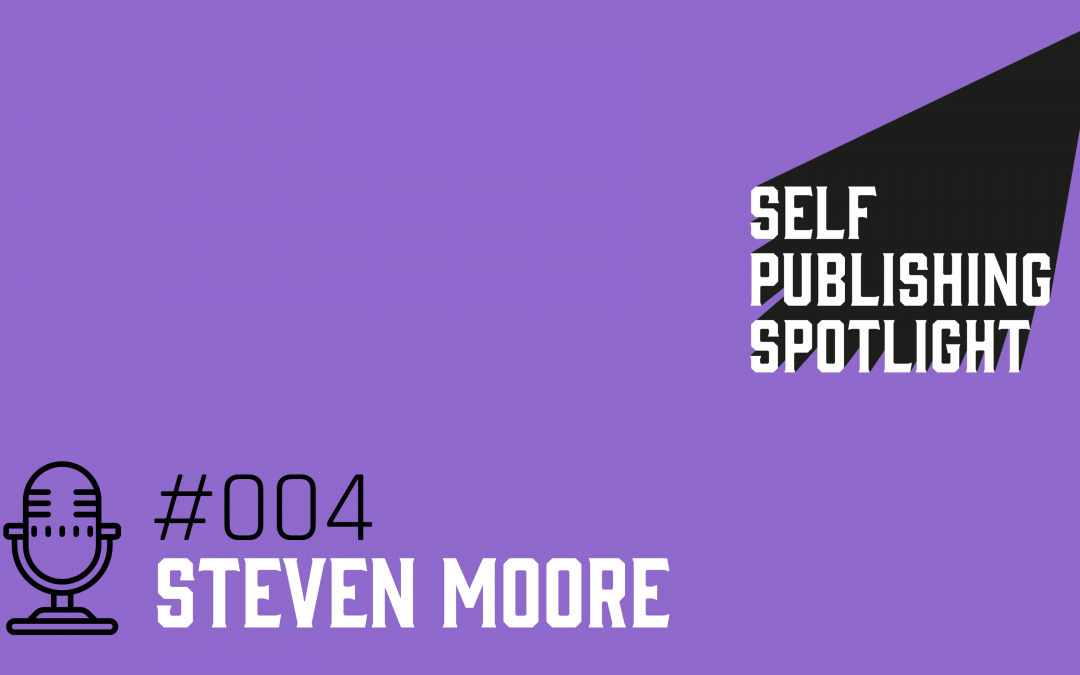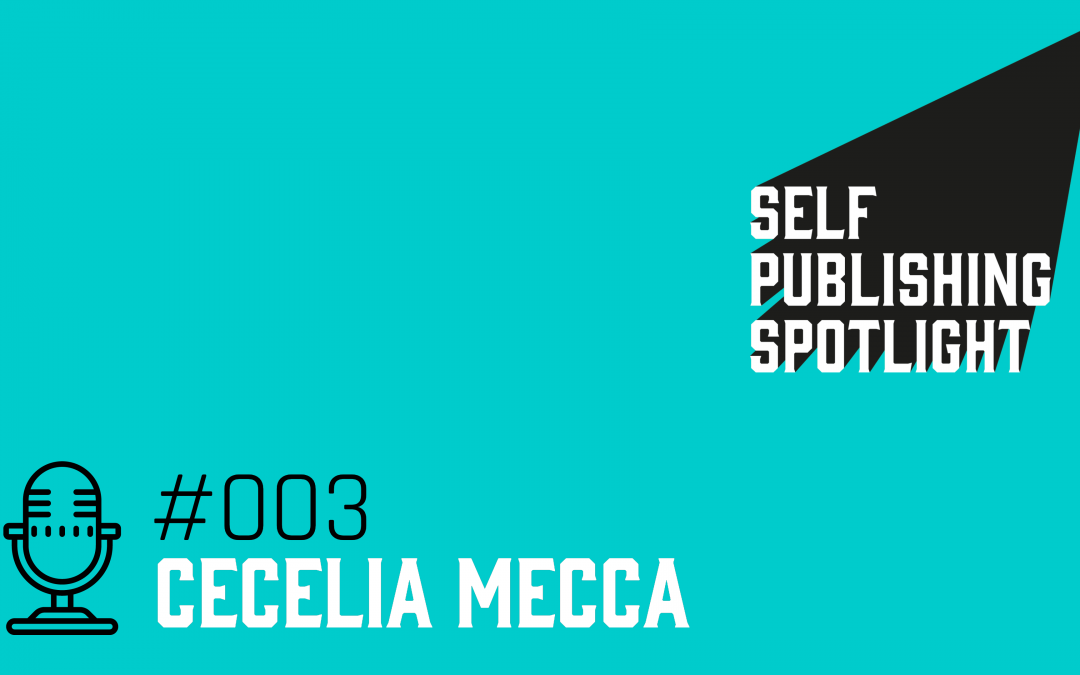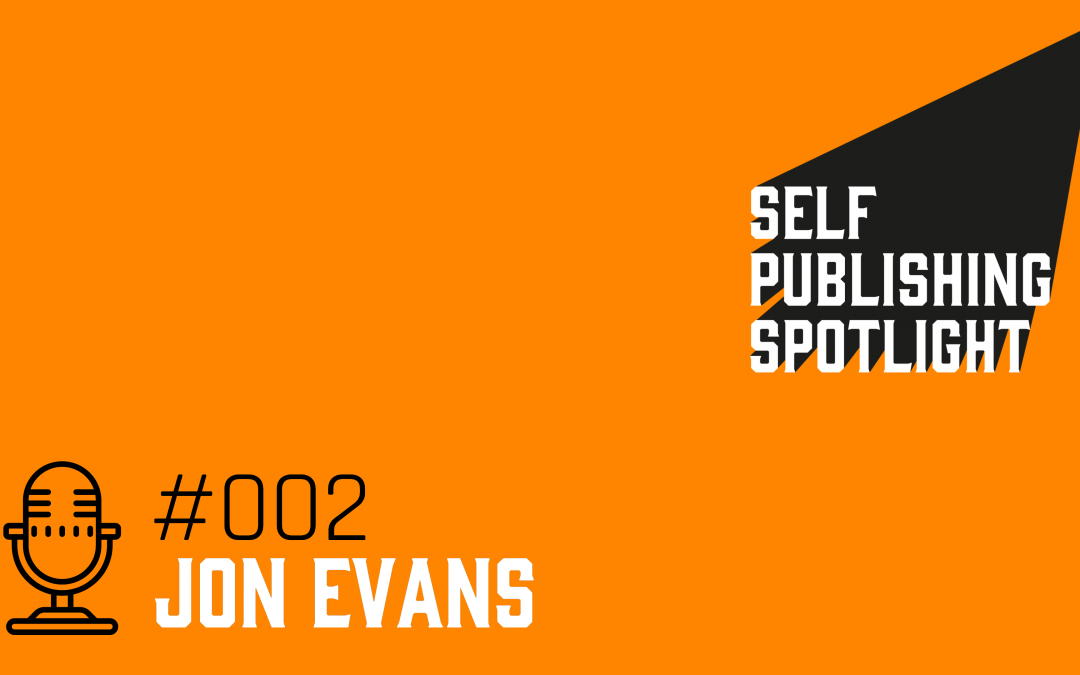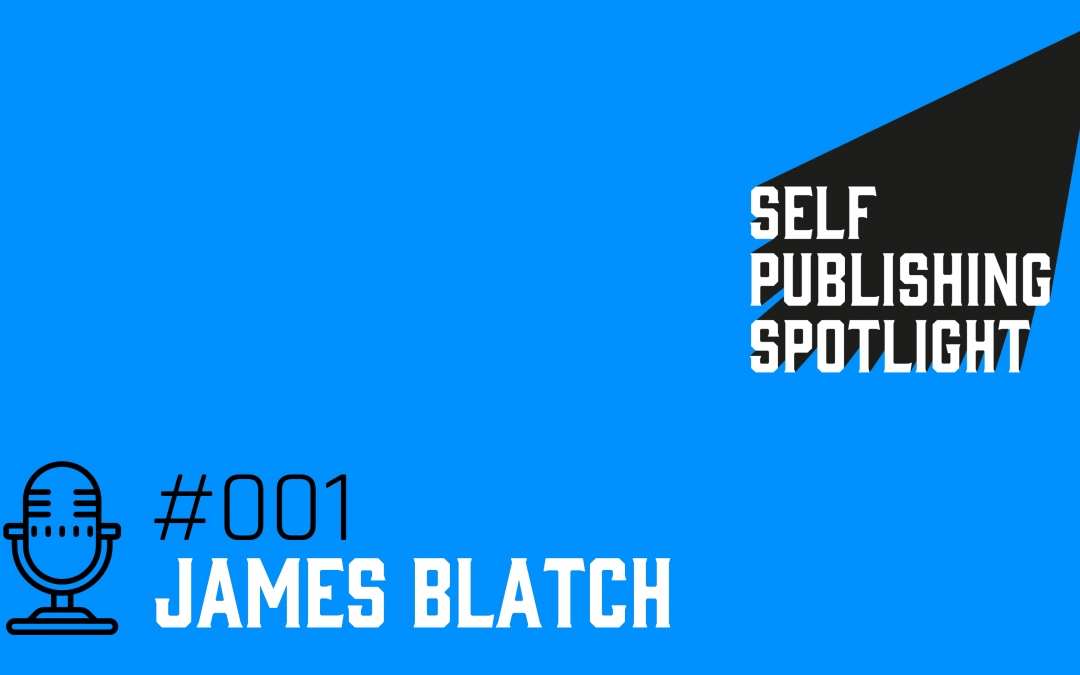Episode Transcript
Mark Dawson: I’m Mark Dawson from the Self-Publishing Show, and this is Self-Publishing Spotlight, where we shine a light on the indie authors who are changing the world of publishing one book at a time.
Tom Ashford: Hello, and welcome to the Self-Publishing Spotlight. We meet indie authors at all stages of their careers and ask them a series of five questions, five questions about their process, their mistakes and their successes; five answers that will help you level up your own author career.
My name is Tom Ashford, and I’m part of the Self-Publishing Formula. Don’t forget that you can get your self-publishing resource kit at selfpublishingformula.com/starterkit.
This week’s guest is Holly S. Roberts. She’s written 48 books in the romance genre, but also some other genres, and she lives in Arizona.
Tom Ashford: Welcome, Holly.
Holly S. Roberts: Hello.
Tom Ashford: 48 books, that’s a lot of books.
Holly S. Roberts: It is a lot of books, but I’ve been writing since 2011, and that’s my only excuse I have.
Tom Ashford: That’s a pretty good excuse. That’s still a lot of books in that time. Yeah, I’m not going to work that out, but that’s quite a lot.
In terms of the genres, obviously, you said that 90% of your books are in the romance genres, but are there any other genres that you’ve worked in?
Holly S. Roberts: I do. I have a mystery out there called The Forever Team, which is just a standalone, and it’s small. It’s a short mystery. It’s under the name Suzie Ivy, which is one of my three writing names, and then I’ve also written memoirs, also under the name Suzie Ivy, and I have a memoir with my agent right now that he’s shopping.
Tom Ashford: Nice.
Holly S. Roberts: I’m trying to think. I think that is all the nonfiction I have outside of romance.
Tom Ashford: Let’s jump into it with the main five questions.
The first one is the biggie, which is why do you write?
Holly S. Roberts: Oh, my goodness. I’m sure you get this from a lot of authors, but these stories run around my head, and my brain chases them. I have to get them out and put them on paper, and it’s funny, because I probably have a thousand storylines that I’ve just started the chapter on, and because it pops into my head and I can’t get rid of it.
I can’t work on what I’m currently working on until I get it out of my head and get it on a piece of paper, so, once that happens, I can go back to what I was working on, and it just seems to be what… It’s good therapy for me.
Tom Ashford: Was there a particular story that encouraged you to start writing in the first place?
Holly S. Roberts: The story that encouraged me to write was actually a therapist. In my 20’s and 30’s, I owned an independent bookstore for 20 years, and then I had this bright, wonderful idea when I was 45. It actually didn’t happen when I was 45. It’s something I dreamed about my whole life, but I really wanted to become a police officer, so, at 45, I did that, which is backwards.
Most police officers do it early and then they go into the book business, and I did the book business first, but in becoming a police officer, I worked homicide and sex crimes, and I found myself in need of a therapist, and my therapist asked me a question, and she said, “What else do you do? What do you want to do? What are your further dreams in your life?” and I said, “One day, I want to write a book,” and so she gave that as an assignment. She told me to write three pages, and I came back with three chapters, and I just kept writing.
Tom Ashford: Yeah, 48 books later.
Holly S. Roberts: 48 books later. I want to say this though. For all the authors out there who were able to leave their jobs and write full time, I wrote more books when I was working full time than I’m capable of writing now.
Tom Ashford: You probably forced yourself into squeezing every possible moment that you had.
Holly S. Roberts: You do, and when you have too much time on your hands, it can be detrimental.
Tom Ashford: Yeah. Okay.
Are you self-published or traditional or hybrid?
Holly S. Roberts: I am all self-published at this point. I have a wonderful agent, but we mostly work on Hollywood deals, which is tied up in this memoir that we have going, and we have some Hollywood stuff going on with that, and so I say keep him around. I love my agent, and I’ll give a shout out to Lane Heymont right now, but I love my agent, and he’s shopping books and he’s shopping it to Hollywood.
Tom Ashford: Nice. Okay, question number two…
Actually, before we jump into question number two, would you ever try to get a traditional contract?
Holly S. Roberts: I don’t know if they could pay me enough money, honestly. A traditional contract, yes, on my nonfiction, but my fiction romance pays the bills, and from what I hear from other authors, if you’re in that mid-list category, which is pretty much where we all would start, they’re just not making as much money as I make indie publishing, so I really like indie publishing.
Tom Ashford: Yeah, and they wouldn’t allow you to publish as many books either.
Holly S. Roberts: That’s true. That’s also true, and I got to get these stories out of my head.
Tom Ashford: Yeah, look at Stephen King who had to create an entirely new persona just to publish the books he was writing.
Holly S. Roberts: Exactly, and he’s not the only one. I mean, Nora Roberts did it, too, and they were having trouble keeping up and, thank goodness, she wrote for Silhouette, which was owned by Harlequin, and she wrote for them, and they were able to publish the amount of books her brain would put out. I didn’t understand that at the time, and I understand it more now, and, no, I’m in no way comparing myself to Nora Roberts.
Tom Ashford: It’s all right. It’s okay. You can, but, yeah, okay, now to actually go on to question number two:
How do you write? Are you more of a plotter or a pantser?
Holly S. Roberts: Oh, I’m a complete pantser. I will plot a book in my head. I have this horrible problem of characters talking to me when I start writing them and changing my storylines, so I, in my head, before I sit down to write the book, I have an idea where the beginning is, the middle is and where I think it’s going to end.
I maybe have two books that have ended where I thought they were going to take me, so I just save that for the characters saying, “No, I want to do this,” or, “I want to do that.”
Tom Ashford: Do you have a particular time and place that you enjoy writing?
Holly S. Roberts: Oh, my gosh, yes. I’m addicted to writing in my old lady chair, as I like to call it, and I have two of them in the house. I have one downstairs and one upstairs, so I just kick back and I start typing.
Tom Ashford: Nice, and so question number three is:
Are you a full-time author? If you are, how did you get there, and if you aren’t, what steps are you taking to make it happen?
Holly S. Roberts: Yes, I am a full-time author, and I was working full time as a police detective, actually, probably full time and a half because my job didn’t end at the end of the normal eight-hour day, and I was on call 24/7. I was the only detective for our agency, so I was constantly on call, and I know most authors don’t talk numbers, but I’m going to talk numbers here.
I remember the very first year that I took a blog and I turned it into a book and I got that up, and then I wrote my first fiction, and I got the first two books of that up, and I think I made about $9,000 that first year, between seven and $9,000, and I was shocked that people would actually pay to read my books. You put them out there, but you’re actually surprised when people start reading them.
And then that next year, I took a huge jump, in my mind it was a huge jump, up to $40,000, and released some more books and was like, “Holy cow, this is unbelievable,” and then that third year I doubled that, and then my fourth year of writing, I actually made over 300K, and that’s where I had to look at my life, how much danger I was in and how little I made, because my take-home salary as a police officer was $39,000.
Now, I made a lot more than that because of all my overtime, but I just had to look at my life, look at the fact that I was getting old and make a decision. It was the scariest thing I’ve ever done. My husband and I have always had jobs, and I told him to quit his job and, “Let’s move. Let’s buy our dream house, and I’m going to be a writer,” and that’s what we did.
Tom Ashford: I’m sure he was pleased.
Holly S. Roberts: Oh, he’s still pleased. He’s not complaining.
Tom Ashford: Yeah, sounds great.
Question number four is what mistakes do you think you’ve made and what have you got right?
Holly S. Roberts: My mistakes early on, and it was because of my career and I was writing romance, writing under too many pseudonyms. I wish I would have stuck under one name. I worried about the police department finding out, and especially with romance novels. There’s a fine line. My chief of police was aware. I told him, but he never asked specific questions about it.
I lived in a very conservative small town, and so I didn’t want people to find out I was writing romance basically, so I started my second identity. This was the time of 50 Shades of Gray, and I decided to venture into the erotic novel, erotic romance end of it, and so I changed my name again, so, by this time, that was my third name.
So biggest mistake I made in my life was changing my name three times, and now I pretty much try to publish just under Holly S. Roberts, and my other name is D’Elen McClain. That was what I published my paranormal under, so huge mistake there, and I still have to control all three of those names, so it takes a lot of time, and so, anyway, if I could go back, that’s what I would change.
I think jumping in the market when I did was probably the smartest thing, and I have to blame that on my therapist. I can’t take credit for it, but that was probably the smartest thing, and so, back in the beginning, the readers were fairly easy on indie authors, I felt, and so I jumped in at this big, exciting time for indie authors to be coming out, and I got wrapped up in that, and that has been my guiding force all along.
And, no, we don’t make the numbers we made back then. Some people do better, so I should say there are some that have done better, but, at the same time, it taught me a lot, and I’ve readjusted how I work, how I operate, but I think just staying current on the market is what I do best and I do the most stuff.
Tom Ashford: Would writing romance novels or just novels, in general, be a problem with the police force?
Holly S. Roberts: It is. They consider it selling sex. To most people, we don’t think of it that way, but I was also a sex crimes detective, so I was very careful. I didn’t want to be slammed. I didn’t want people that I dealt with out there to, “Oh, she’s just a romance writer,” and, believe me, I have a lot of respect for romance writers.
When I owned my bookstore, they’re the ones that paid my bills, so those romance books and those readers that gobble up romance, and I’ve always been an avid romance reader, but I did read mystery suspense, and as a police officer, I found myself wanting happy endings, which I no longer wanted the mystery suspense, and so romance is just… I don’t know. It’s important to me because it does have a happy ending and we just don’t find that in real life enough, and sometimes we just need to read about it.
Tom Ashford: Yeah, particularly if you’re a homicide detective.
Holly S. Roberts: Especially if you’re a homicide detective, yes. I needed books that just talked about love and didn’t talk about hate. That’s what I needed to surround myself and that’s, honestly, what I really love writing. I love writing romance.
Tom Ashford: Question number five is what’s your final piece of advice for authors starting out in indie publishing?
Holly S. Roberts: Perseverance. I know from every series I write that I don’t normally get traction until around book three. I have a series out right now. The first two books were incredible. I just released book three, and now the series is taking off, so I had to rely on my other books, and here I’ve spent this time, written two books, and they’re really not selling, and so you just have to sit back and know that that third and that that fourth book will be coming out and sales will pick up, and I got lucky on this one because, on book three, sales definitely picked up on it, so, perseverance, stick with it.
I believe in writing series. All of my books are series. If I’ve only written one like the Suzie Ivy, it was planned as a series, but that’s what’s in my plan, so my advice would simply be to keep writing, and I know people hate when you say that.
Find the time, and I did it. I did it working at least I would say 70 hours a week. I found the time to write. I don’t know how moms do it with little kids at home. I will say that. I didn’t have any kids at home, but find that time to write, and be patient with yourself, and take all your bad reviews, gather them up and read them, and, literally, read them and listen to what the customers are saying, and some of them, yes, you can throw them right out the window.
I have a review that came in today, this morning, that was a plot flaw, that I had made a mistake, and so I was in fixing that mistake this morning, and I want to thank that reader for… and it’s up on Amazon. They put it up on Amazon, and I’m like, “Oh, crap,” and what I did, it was only in… it was in one paragraph to… one name, but she wasn’t the one who died in the last book. It was another lady, and that threw the reader out of the experience, so it was a mistake I made and I fixed it, so just take them all.
Read those reviews. I know a lot of authors don’t, but I say read them, and I say learn from those reviews and take them all as this is people, their opinion and not necessarily a reflection of your writing, but look at their opinion and be willing to accept that sometimes you need to change things.
Tom Ashford: Nice. Great advice, and that’s it. That’s your five questions, so thank you very much for coming on. It’s been great speaking to you.
Holly S. Roberts: Thank you for having me. I was really excited about this, so it’s been a wonderful way to start my morning.
Tom Ashford: That’s it for this week’s Self-Publishing Spotlight. Don’t forget that you can get your free self-publishing resource kit at selfpublishingformula.com/starterkit.
And if you want to appear as a guest on the show, send us brief details about yourself and your writing at selfpublishingformula.com/spotlight-guest.
I’m Tom Ashford, and I’ll see you again next week.
Grab Your SPF Freebies!
Sign up to receive your SPF starter package, which includes a free 3 part video series on getting started with FB ads, and inspirational and educational weekly emails.
